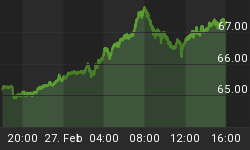National pride and cosmic geopolitics has nothing to do with today’s space race from the American perspective. It’s all about eventual profit, and that’s exactly why it might work. And with that in mind, today was another space first: Richard Branson’s Virgin Galactic Holdings just became the first space tourism company to hit public markets after listing on the New York Stock Exchange.
The move follows the company’s merger with Social Capital Hedosophia Holdings, setting up the space tourism company to list directly on the NYSE on Monday. Shares of Virgin Galactic rose as high as $12.93, up more than 9%.
Virgin Galactic plans to create a space tourism market in which wealthy travelers are projected to spend more than $200,000 per seat to fly to the edge of space. Launch of the otherworldly service is slated to begin in the first half of 2021.
More than 600 people in over 60 nations have spent roughly $80 million to reserve seats on Branson's rocket ships in hopes of being the first to gain access to this unique new service.
Bloomberg pointed out that Virgin Galactic has unveiled all sorts of bells and whistles for its flights, including champagne and caviar. The view is also included in the ticket.
Does this mean we have any idea how much Virgin Galactic is worth?
Not a clue, though Branson expects to start seeing profits as early as next year.
But Branson, of course, isn’t the only billionaire in the space race, even if he is the first to go public.
Virgin Galactic is up against Elon Musk's SpaceX and Jeff Bezos's Blue Origin for the title of first company to send paying passengers into space.
The global space industry is expected to generate revenue of $1.1 trillion or more in 2040, up from the current $350 billion, according to a recent Morgan Stanley estimate.
With this much money involved and high competition, naturally, there is a nice share of drama testing the gravity.
In October last year, Blue Origin, Northrop Grumman and United Launch Alliance (ULA) won $2.3 billion in U.S. Air Force contracts. The breakdown was $500 million for Blue Origin, nearly $800 million for Northrop and almost $1 billion for ULA. (Yes, notably, Elon Musk’s SpaceX was left out of the equation.) The contracts were intended, on paper, to aid in the development of the three companies’ rockets--all slated to be operational around 2021.
Related: The Relatively Of Money And Happiness
Musk balked at the setup, suing the Air Force for excluding SpaceX. There will also be a second bidding round for rockets scheduled to be operational from 2022 to 2026. But this time around, only two companies will be chosen. Bezos’ Blue Origin is now protesting this, presumably because Bezos thinks that his company will be the one left out, though no contracts have been awarded.
So it looks like everything is set up for space exploration, whether it is about space hotels, cosmic business insurance, celestial advertising billboards or mineral exploration.
But there’s no IPO-ing space itself.
The latest regulation on it, Outer Space Treaty, was written and signed back in 1967, when most likely commercial space travel wasn’t even considered.
The treaty--in all of its 17 short articles--establishes that all nations should have free access to space and that space and celestial bodies cannot be appropriated by a nation.
Apart from the treaty and couple other agreements, like the one that recognizes launched satellites as sovereign territory, the rest is the Wild West--as an understatement.
By Michael Kern for Safehaven.com
More Top Reads From Safehaven.com:
















